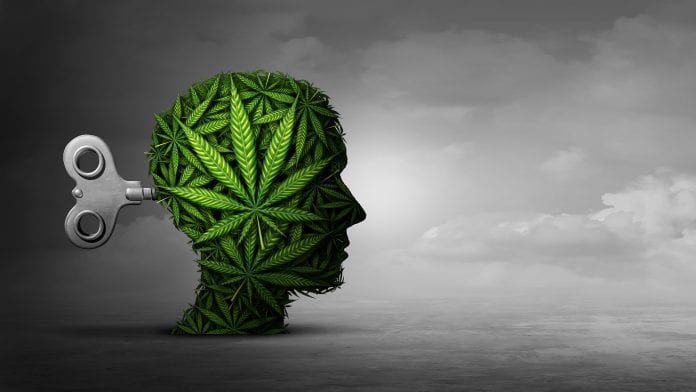
A combination of inflammatory cytokines in the blood and regular cannabis use, or use at a young age, can increase the chances of developing psychiatric disorders, researchers have demonstrated.
A first-of-its-kind study by researchers at the University of São Paulo‘s Ribeirão Preto Medical School (FMRP-USP) in Brazil found that individuals exposed to a combination of these two factors – the presence of pro-inflammatory cytokines in the blood and cannabis use (either daily or during adolescence) – are more likely to suffer from psychosis than those who are exposed to neither or to only one. According to the authors, the study provides “the first clinical evidence that immune dysregulation modifies the cannabis-psychosis association.”
The study was part of a project conducted by the European Network of National Schizophrenia Networks Studying Gene-Environment Interactions (EU-GEI), a consortium of research centres in 13 countries, including Brazil. An article published in The Lancet Psychiatry by the consortium in 2019 showed that daily cannabis use increased the likelihood of suffering from a psychotic disorder threefold.
The article has been published in the journal Psychological Medicine.
Cannabis use and body functioning
In the more recent study, the researchers analysed data for 409 people aged 16 to 64, including patients experiencing their first psychotic episode and community-based controls. The sample was drawn from the populations of Ribeirão Preto and 25 other cities in the region. The variables analysed included cannabis use frequency (daily, not daily, or never), duration (five years or less), and onset age (in adolescence or later).
As well as the questionnaire on cannabis use, researchers measured various cytokines in plasma donated by the volunteers and calculated scores representing their systemic inflammatory profiles. They also collected clinical and socio-demographic data, especially variables known as confounders, such as age, gender, schooling, ethnicity, body mass index, smoking, and use of psychoactive substances. The results obtained were independent of confounding factors.
Fabiana Corsi-Zuelli, first author of the article, said: “Not everyone who uses cannabis develops psychosis. This suggests that the association may be modified by other factors, which may be biological, genetic, or environmental.
“In a previous study conducted as part of my master’s research, we identified a correlation between plasma cytokines and the first psychotic episode. Following up on this discovery, and the consortium’s recent publication showing a higher incidence of psychosis among subjects who used cannabis on a daily basis, our next step was to see if the biological factor [inflammatory profile] affected the link between cannabis use and psychosis.
“We found a statistically significant correlation between inflammatory profile and cannabis use on a daily basis or during adolescence. In sum, the results showed that immune system dysfunction can modify the association between cannabis use and psychosis and that a combination of these two factors increases the odds of suffering from a psychotic disorder.”
The principal investigator for the project is Cristina Marta Del-Ben, Professor at FMRP-USP’s Department of Neurosciences and Behavioral Sciences. According to Del-Ben, risk factors for psychosis may be biological, including genetic predisposition and problems during pregnancy, as well as environmental, including traumatic experiences during childhood and adolescence, and exposure to psychoactive substances, especially cannabis.
Professor Del-Ben said: “The mechanisms of the disorder are poorly understood. Our findings show that frequent current use of cannabis or use of the drug in adolescence is a risk factor for psychosis. We didn’t detect the same correlation with occasional or recreational use. In the multicentre study, which included European cities with varying levels and types of cannabis availability, we also found that the risk of psychosis is greater in users of stronger cannabis strains with a THC content or 10% of higher.” THC is the primary psychoactive constituent of cannabis or marijuana.
Recommendations
Following these insights, the researchers plan to next study genetic variants associated with the immune system and use neuroimaging data to explore the link with environmental risk factors.
“Focusing in this way on the interactions between genetics and the environment will help us understand the neurobiology of psychosis, especially the role played by the immune system.
“It’s important to the search for alternative treatments for these disorders, and also to answering often neglected questions relating to the physical health of psychiatric patients,” Corsi-Zuelli said.






